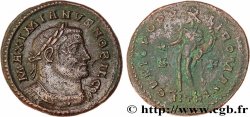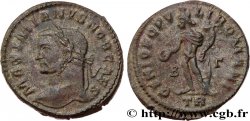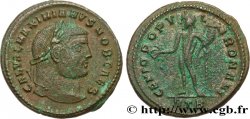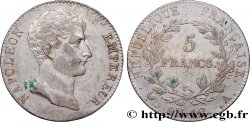brm_590699 - GALERIUS Follis ou nummus
Not available.
Item sold on our e-shop (2021)
Price : 220.00 €
Item sold on our e-shop (2021)
Price : 220.00 €
Type : Follis ou nummus
Date: 300-301
Mint name / Town : Trèves
Metal : copper
Diameter : 27 mm
Orientation dies : 11 h.
Weight : 9,41 g.
Rarity : R1
Officine: 1re
Coments on the condition:
Exemplaire de qualité exceptionnelle sur un flan irrégulier bien centré. Beau buste de Galère. Très joli revers de style fin. Jolie patine gris métallique avec des reflets dorés. Conserve l’intégralité de son brillant de frappe et de son coupant d’origine
Obverse
Obverse legend : GAL VAL MAXIMIANVS N C.
Obverse description : Buste lauré et cuirassé de Galère César à droite drapé sur l’épaule, vu de trois quarts en avant (B*01).
Obverse translation : "Galerius Valerius Maximianus Nobilissimus Cæsar", (Galère Valère Maximien très noble césar).
Reverse
Reverse legend : MONETA S AVGG ET CAESS NN/ -|*//ATR.
Reverse description : Moneta (la Monnaie) debout à gauche, tenant une balance de la main droite et une corne d'abondance de la gauche.
Reverse translation : "Moneta Sacra Augustorum et Cæsarorum Nostrorum" (Monnaie sacrée de nos augustes et de nos césars).
Commentary
Avec l’intégralité de son argenture superficielle. Rubans de type 3 aux extrémités bouletées. Cuirasse lisse. Épaulière cloutée. Ptéryges fines.
With all of its surface silvering. Type 3 ribbons with pelleted ends. Smooth breastplate. Studded shoulder pad. Fine pteryga
With all of its surface silvering. Type 3 ribbons with pelleted ends. Smooth breastplate. Studded shoulder pad. Fine pteryga








 Report a mistake
Report a mistake Print the page
Print the page Share my selection
Share my selection Ask a question
Ask a question Consign / sell
Consign / sell
 Full data
Full data















